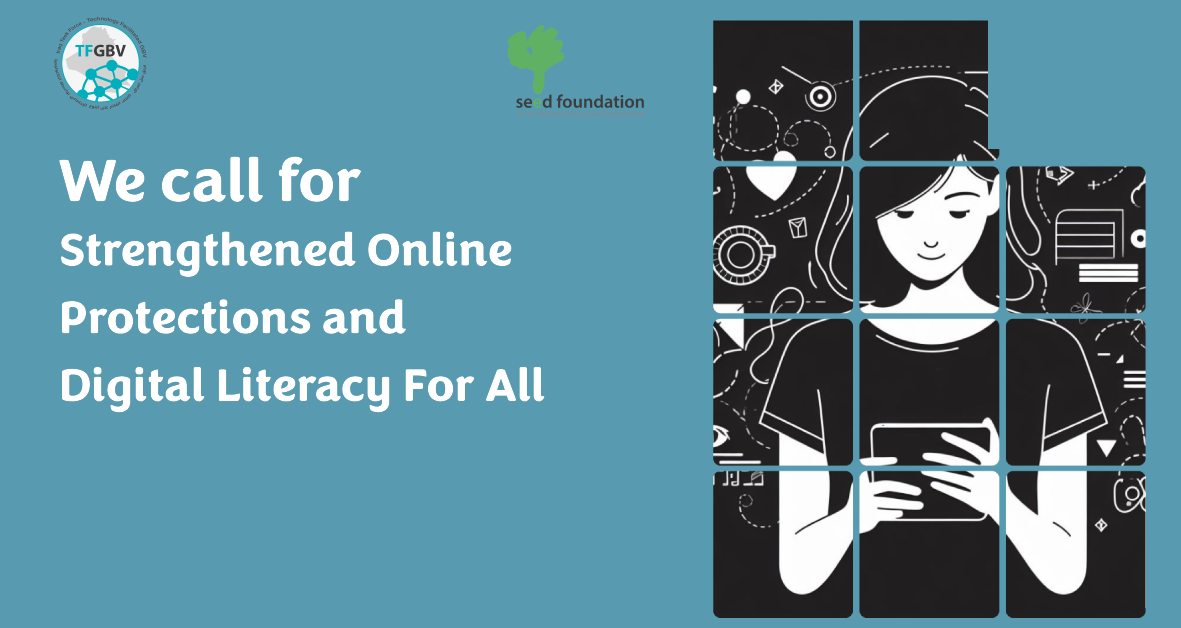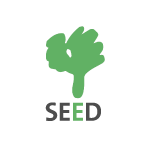
Iraq National TFGBV Task Force On World Internet Day
We call for Strengthened Online Protections and Digital Literacy For All
Erbil, Iraq – October 29, 2023: On the occasion of World Internet Day, SEED Foundation, together with members of the Iraq National Technology Facilitated Gender-Based Violence (TFGBV) Task Force, reiterate their commitment to eradicating online violence and ensuring safe access to the internet for all.
Today, as we appreciate the increased social connectedness, access to immense knowledge, and vast human development that the internet brings, we are also experiencing the consequences of digital technology rising unchecked in Iraq. The internet has become the birthplace of new and dangerous forms of gender disparity. As a result, some of the population is being left behind or subjected to gender-based violence.
In Iraq and Kurdistan, almost 75% of the population are online. However, this is largely comprised of men (98%) compared with only 51% of women, creating a huge digital gender gap. This reflects wider societal inequalities and stems from women’s reduced access to education, restricted access to digital devices as a form of intimate partner violence (or GBV), and limited financial capacity to purchase them. For women, digital literacy correlates with education, age, and economic class.
For those who are online, a lack of dedicated training and education can put them at heightened risk of online abuse or TFGBV including the most commons forms in Iraq and Kurdistan – bullying, hate speech, online harassment and abuse, and image-based sexual abuse. TFGBV, which primarily affects women and girls, can have a significant impact on a survivor’s mental health and well-being, and in the worst cases, can migrate offline to physical forms of violence. In the worst cases, prominent cultures of shame and the ‘honor’ system puts survivors of TFGBV in a particularly volatile situation where they may face severe societal stigma and isolation, coerced suicide, or ‘honor’ violence that includes murder. Children are particularly at risk of online abuse including sexual harassment exploitation, abuse, and trafficking.
The social, economic, and informational gains the internet promises cannot be realized without addressing these gendered inequalities and risks. This requires rights-based legislation and policies to govern internet usage, with robust protection response frameworks, and increased understanding and public awareness of the potential harms online.
The Government of Iraq and the Kurdistan Regional Government have taken significant steps toward increased digitization – in particular to increase the accessibility of government services. The government, civil society, and the private sector, must work together to ensure the internet is a safe and enriching place for all, by:
Strengthening legal frameworks to bolster protections for survivors and those at-risk of TFGBV including child sexual exploitation and abuse, including preventive measures, access to mandated institutions and specialized services;
Providing clear criminal procedures and laws on cyber crimes;
Integrating human rights-based and survivor-centered approaches into their response, including provisions on consent, confidentiality, and the safety and security of survivors;
Raising public awareness of online safety and how to access support services;
Improved digital literacy and access for all of society;
Creating clear, accessible, and effective complaints mechanisms – including with accountability mechanisms for social media companies to ensure their compliance with the law;
Collaborating and coordinating across the government and with civil society to prevent TFGBV and support survivors.
On World Internet Day, we stand together to eradicate online violence by striving for equal access and digital literacy for women, men, boys, and girls, and investing in strengthened protections against TFGBV.
-ENDS-
SEED Foundation is a local NGO in the Kurdistan Region of Iraq, committed to protecting, empowering, and supporting the recovery of survivors of violence and others at risk. Our approach to this mission is integrative and holistic. We provide quality and comprehensive services, including mental health and psychosocial support (MHPSS), legal, protection, and shelter services; training, capacity building, and education for those working to protect and serve survivors; and policy and advocacy to strengthen laws, policies, practices, and protections for vulnerable people, and to promote social change.
For more information, please contact: media@seedkurdistan.org
1.Data Reportal, https://datareportal.com/reports/digital-2023-iraq
2.Global Network of Women Peacebuilders, https://gnwp.org/resources/covid-19-wps-database/worsened-gender-digital-divide-2/
